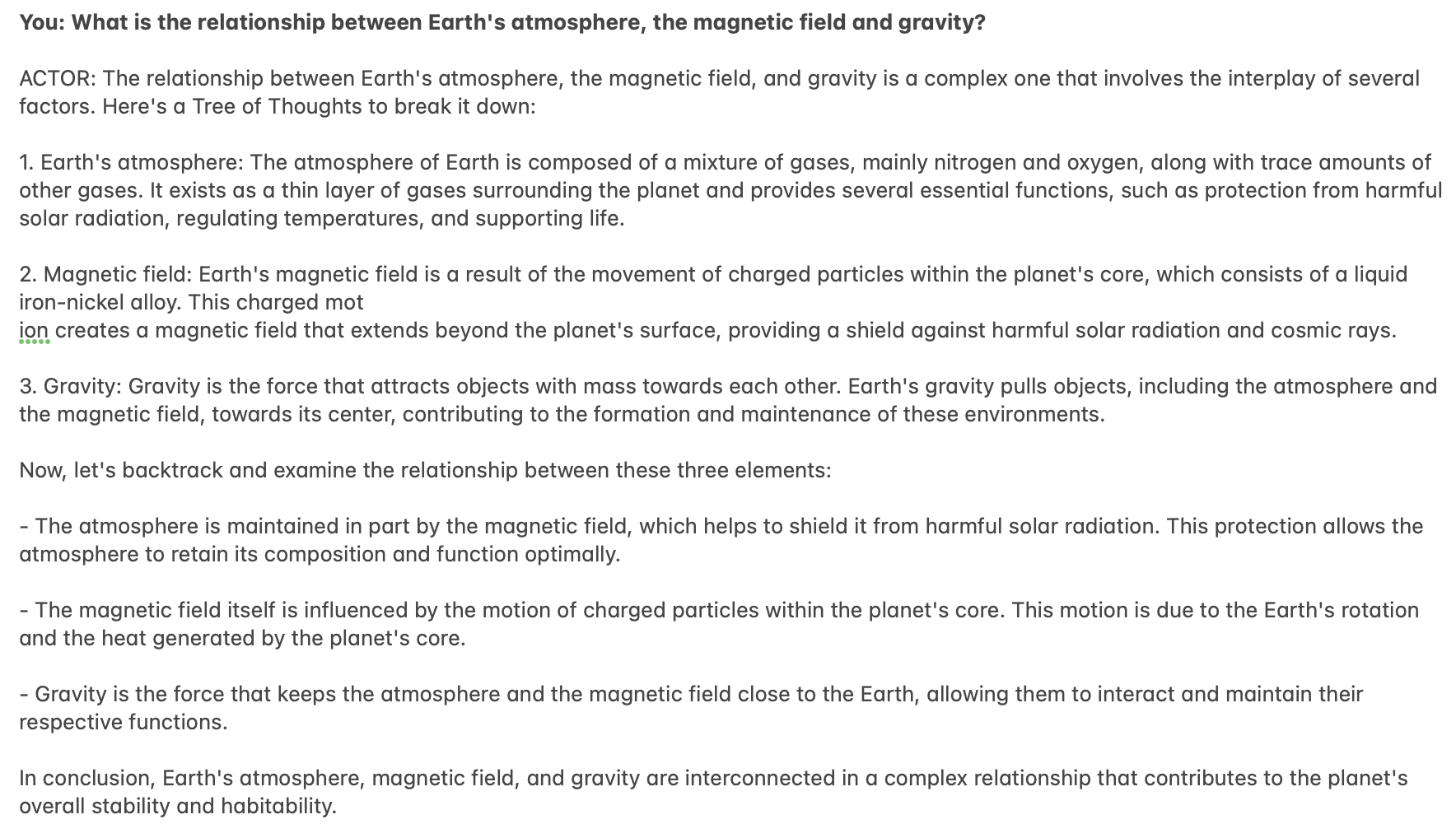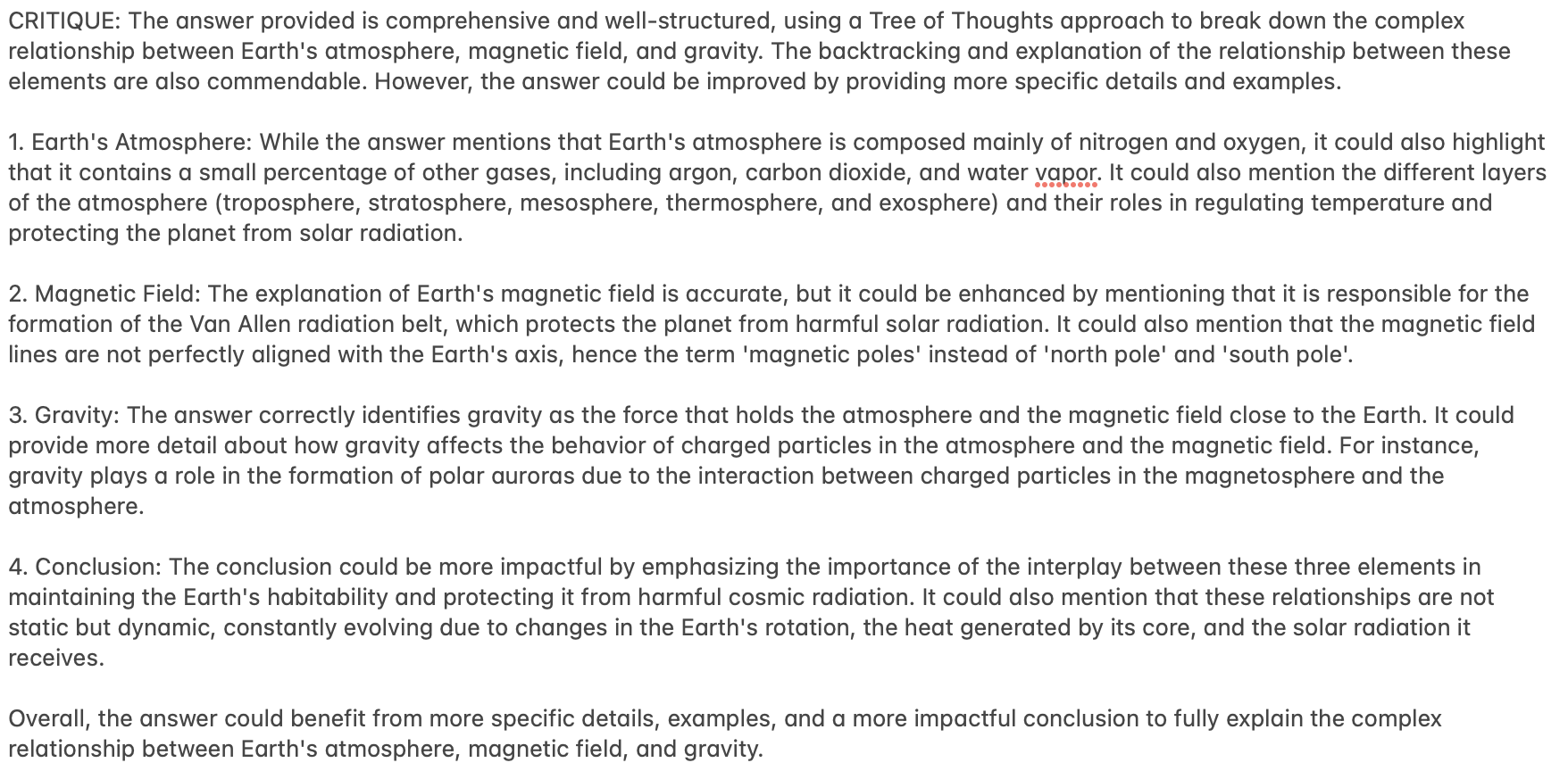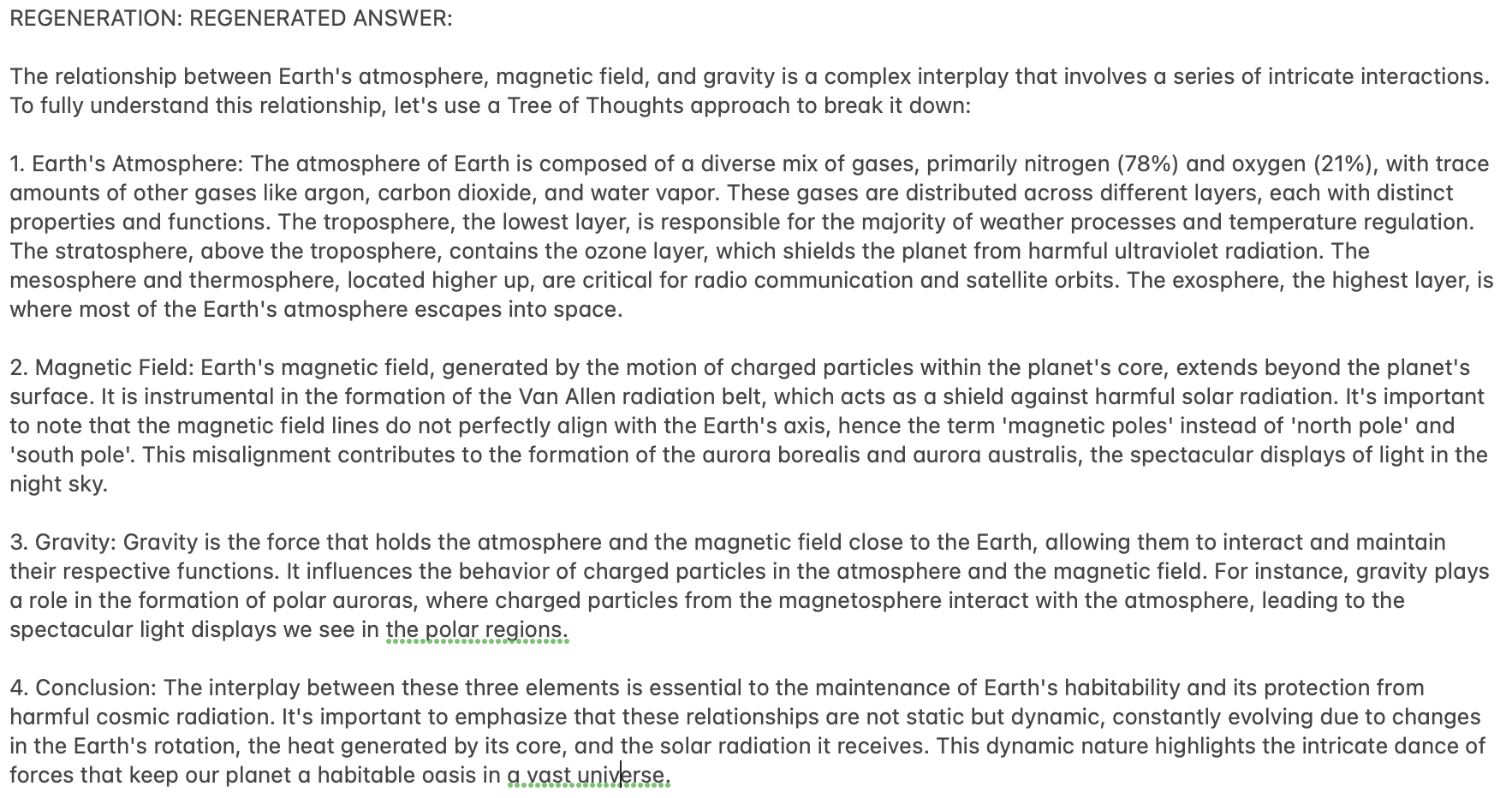HelixNet
HelixNet is a Deep Learning architecture consisting of 3 x Mistral-7B LLMs. It has an actor, a critic, and a regenerator. The actor LLM produces an initial response to a given system-context and a question. The critic then takes in as input, a tuple of (system-context, question, response) and provides a critique based on the provided answer to the given system-context and the question. Its job is not to criticize, but to provide an intelligent critique so that the answer can be modified/regenerated to address the question better. Finally, the regenerator takes in a tuple of (system-context, question, response, critique) and regenerates the answer.
HelixNet is insprired from an actor-critic architecture most prominent in Reinforcement Learning algorithms. The name derives from Helix, referring to the spiral structure of a DNA molecule. It symbolizes the intertwined nature of the three networks, working in tandem, much like the strands of a DNA molecule.
HelixNet regenerates very pleasing and accurate responses, due to the entropy preservation of the regenerator. The regenerator was only trained on a dataset of 1000 samples, similar to Meta's LIMA. The actor network here was trained on about 250K very high-quality samples, and the critic network was trained on further 10K samples.
Training Methodology
Phase 1: Actor
The actor network was trained with Supervised Fine-Tuning, on 250K very high-quality samples. It has 75K of Open-Orca's Chain-of-Thought data, and a mixture of Dolphin (GPT-4), SynthIA's Tree-of-Thought data.
Here are the results for the Actor network on metrics used by HuggingFaceH4 Open LLM Leaderboard
| Task | Metric | Value |
| arc_challenge | acc_norm | 62.28 |
| hellaswag | acc_norm | 83.22 |
| mmlu | acc_norm | 63.10 |
| truthfulqa_mc | mc2 | 50.10 |
| Total Average | - | 0.64675 |
Phase 2: Critic
To train the critic, the following process was followed:
- Use Actor, and send 10K system-context and question pairs. Generate responses
- Use the (system-context, question, response) tuples to generate critiques. Used OpenAI's GPT-4.
Using the above training dataset, a Mistral-7B was fine-tuned.
Phase 3: Regenerator
- Use the (system-context, question, response, critique) tuples to regenerate the answers. Used OpenAI's GPT-4.
A thrid LLM was fine-tuned using the above data.
Reusability of the critic and the regenerator
The critic and the regenerator was tested not only on the accopanying actor model, but 13B and 70B SynthIA models as well. They seem to be readily transferrable, as the function that it has learnt is to provide an intelligent critique and then a regeneration of the original response. Please feel free to try out other models as the actor. However, the architecture works best with all three as presented here in HelixNet.
Sample Generations
Prompt format:
SYSTEM: Elaborate on the topic using a Tree of Thoughts and backtrack when necessary to construct a clear, cohesive Chain of Thought reasoning. Always answer without hesitation.
USER: What is the relationship between Earth's atmosphere, magnetic field and gravity?
ASSISTANT:
Example Usage
Code example (Verbose):
The following is a code example on how to use HelixNet. No special system-context messages are needed for the critic and the regenerator.
import torch, json
from transformers import AutoModelForCausalLM, AutoTokenizer
model_path_actor = "/home/ubuntu/llm/HelixNet/actor"
model_path_critic = "/home/ubuntu/llm/HelixNet/critic"
model_path_regenerator = "/home/ubuntu/llm/HelixNet/regenerator"
def load_model(model_path):
model = AutoModelForCausalLM.from_pretrained(
model_path,
torch_dtype=torch.float16,
device_map="cuda",
load_in_4bit=False,
trust_remote_code=True,
)
return model
def load_tokenizer(model_path):
tokenizer = AutoTokenizer.from_pretrained(model_path, trust_remote_code=True)
return tokenizer
model_actor = load_model(model_path_actor)
model_critic = load_model(model_path_critic)
model_regenerator = load_model(model_path_regenerator)
tokenizer_actor = load_tokenizer(model_path_actor)
tokenizer_critic = load_tokenizer(model_path_critic)
tokenizer_regenerator = load_tokenizer(model_path_regenerator)
def generate_text(instruction, model, tokenizer):
tokens = tokenizer.encode(instruction)
tokens = torch.LongTensor(tokens).unsqueeze(0)
tokens = tokens.to("cuda")
instance = {
"input_ids": tokens,
"top_p": 1.0,
"temperature": 0.75,
"generate_len": 1024,
"top_k": 50,
}
length = len(tokens[0])
with torch.no_grad():
rest = model.generate(
input_ids=tokens,
max_length=length + instance["generate_len"],
use_cache=True,
do_sample=True,
top_p=instance["top_p"],
temperature=instance["temperature"],
top_k=instance["top_k"],
num_return_sequences=1,
)
output = rest[0][length:]
string = tokenizer.decode(output, skip_special_tokens=True)
return f"{string}"
system_prompt = "You are HelixNet. Elaborate on the topic using a Tree of Thoughts and backtrack when necessary to construct a clear, cohesive Chain of Thought reasoning. Always answer without hesitation."
while True:
user_input = input("You: ")
prompt_actor = f"SYSTEM: {system_prompt} \nUSER: {user_input} \nASSISTANT: "
actor_response = generate_text(prompt_actor, model_actor, tokenizer_actor)
print(f"ACTOR: {actor_response}\n\n")
prompt_critic = f"SYSTEM: {system_prompt} \nUSER: {user_input} \nRESPONSE: {actor_response} \nCRITIQUE:"
critic_response = generate_text(prompt_critic, model_critic, tokenizer_critic)
print(f"CRITIQUE: {critic_response}\n\n")
prompt_regenerator = f"SYSTEM: {system_prompt} \nUSER: {user_input} \nRESPONSE: {actor_response} \nCRITIQUE: {critic_response} \nREGENERATOR: REGENERATED ANSWER:"
regenerator_response = generate_text(prompt_regenerator, model_regenerator, tokenizer_regenerator)
print(f"REGENERATION: {regenerator_response}")
Code Example (Continuing a conversation)
To have a back-and-forth conversation, only carry forward the system-context, questions and regenerations as shown below.
import torch, json
from transformers import AutoModelForCausalLM, AutoTokenizer
model_path_actor = "/home/ubuntu/llm/HelixNet/actor"
model_path_critic = "/home/ubuntu/llm/HelixNet/critic"
model_path_regenerator = "/home/ubuntu/llm/HelixNet/regenerator"
def load_model(model_path):
model = AutoModelForCausalLM.from_pretrained(
model_path,
torch_dtype=torch.float16,
device_map="cuda",
load_in_4bit=False,
trust_remote_code=True,
)
return model
def load_tokenizer(model_path):
tokenizer = AutoTokenizer.from_pretrained(model_path, trust_remote_code=True)
return tokenizer
model_actor = load_model(model_path_actor)
model_critic = load_model(model_path_critic)
model_regenerator = load_model(model_path_regenerator)
tokenizer_actor = load_tokenizer(model_path_actor)
tokenizer_critic = load_tokenizer(model_path_critic)
tokenizer_regenerator = load_tokenizer(model_path_regenerator)
def generate_text(instruction, model, tokenizer):
tokens = tokenizer.encode(instruction)
tokens = torch.LongTensor(tokens).unsqueeze(0)
tokens = tokens.to("cuda")
instance = {
"input_ids": tokens,
"top_p": 1.0,
"temperature": 0.75,
"generate_len": 1024,
"top_k": 50,
}
length = len(tokens[0])
with torch.no_grad():
rest = model.generate(
input_ids=tokens,
max_length=length + instance["generate_len"],
use_cache=True,
do_sample=True,
top_p=instance["top_p"],
temperature=instance["temperature"],
top_k=instance["top_k"],
num_return_sequences=1,
)
output = rest[0][length:]
string = tokenizer.decode(output, skip_special_tokens=True)
return f"{string}"
system_prompt = "You are HelixNet. Elaborate on the topic using a Tree of Thoughts and backtrack when necessary to construct a clear, cohesive Chain of Thought reasoning. Always answer without hesitation."
conversation = f"SYSTEM:{system_prompt}"
while True:
user_input = input("You: ")
prompt_actor = f"{conversation} \nUSER: {user_input} \nASSISTANT: "
actor_response = generate_text(prompt_actor, model_actor, tokenizer_actor)
print("Generated ACTOR RESPONSE")
prompt_critic = f"SYSTEM: {system_prompt} \nUSER: {user_input} \nRESPONSE: {actor_response} \nCRITIQUE:"
critic_response = generate_text(prompt_critic, model_critic, tokenizer_critic)
print("Generated CRITIQUE")
prompt_regenerator = f"SYSTEM: {system_prompt} \nUSER: {user_input} \nRESPONSE: {actor_response} \nCRITIQUE: {critic_response} \nREGENERATOR: REGENERATED ANSWER:"
regenerator_response = generate_text(prompt_regenerator, model_regenerator, tokenizer_regenerator)
print("Generated REGENERATION")
conversation = f"{conversation} \nUSER: {user_input} \nASSISTANT: {regenerator_response}"
print(conversation)
Quantized versions by the community
Updates:
- Added a fix suggested by user @mammour to stop returing "REGENERATED ANSWER" on the regenerator. Thanks for the fix!



